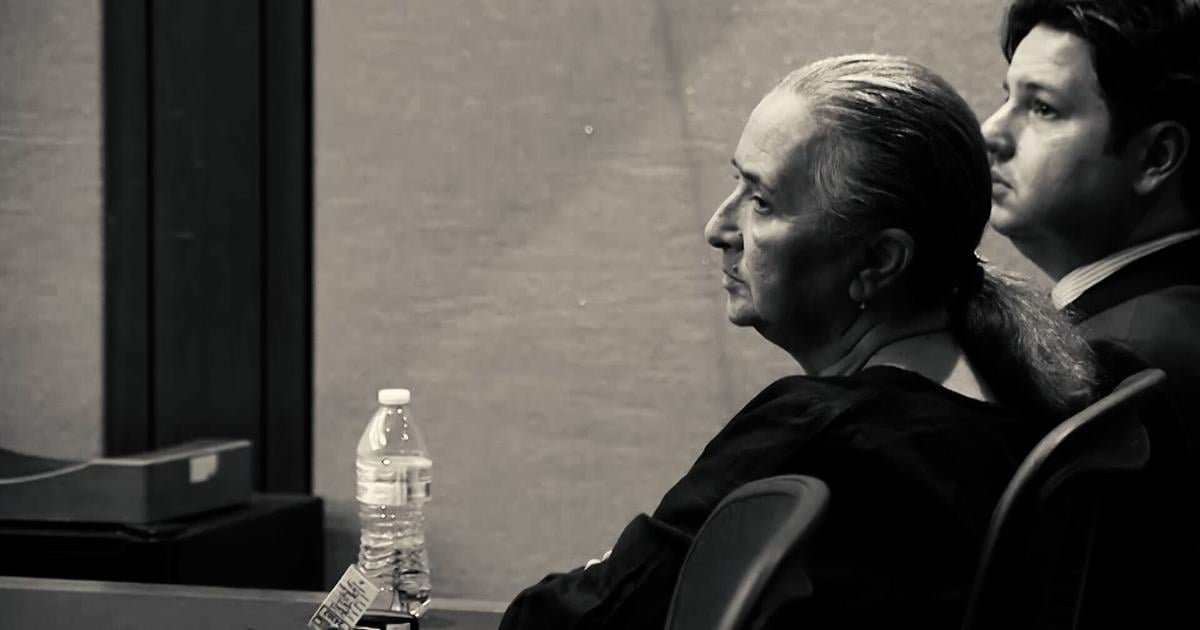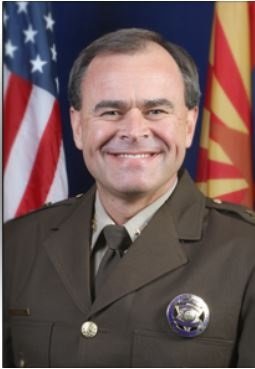Getty Images
Irrigation canals and siphon pipes that supply water to an alfalfa field in Arizona.
There has long been simmering outrage over Saudi dairy companies using Arizona’s groundwater to grow alfalfa here and send it back to the Middle East.
Anger is now boiling over as the state’s water crisis deepens, with residents, local authorities and state leaders calling for intervention.
Although the laws in place limit what they can do, many Arizonans wonder how international water exploration ended up in the super-arid Southwest in the first place.
In La Paz County, near the western border of the state, there are alfalfa farms a few miles off Interstate 10 and Route 60.
It’s one of the epicenters of Arizona’s water crisis, in part because there’s no limit to how much groundwater a farm can use. Part of the reason is that precious water from one desert is used to feed cattle in another desert halfway around the world.
The Saudi government had begun to encourage agricultural companies to look abroad for water-intensive crops. In 2011, Saudi agricultural giant Almarai acquired Argentina’s Fondmonte company.
A few years later, in 2014, a subsidiary, Fondmonte, Arizona, purchased land in La Paz County.
However, Arizona’s relationship with the Arabian Peninsula dates back to the 1940s.
“While this is a long relationship that is primarily related to desert agriculture, there are also many other broader political, ecological and scientific ties that tie the two places together. It’s a fascinating story because the same kinds of connections keep being reinvented over and over again, and we in Arizona often don’t know that history, but we don’t. Arizona has this,” said Professor Natalie Koch of Syracuse.
She said the land in La Paz County was already being used by local farmers before Fondmonte bought it.
“But they were able to apply for permits for many new wells, and then they were able to pump more water, so they could basically produce more alfalfa in the same place. said Koch.
Arizona only regulates urban areas, so there is no limit to how much you can pump there.
Fondmonte’s use of water has drawn outrage from locals and elected officials, including Attorney General Chris Mays.
“The idea of using Arizona groundwater for that and sending alfalfa back to Saudi Arabia, but as you know, I am very against this use of Arizona water,” she said.

Chris Mays in 2022
Mays said there were inconsistencies in the company’s paperwork, and state officials recently revoked, at least temporarily, Mr. Fondmonte’s permit to drill two new wells.
“Part of the application claimed to own the land in the Butler Valley, but in fact the State Lands Department owns it,” Mays said.
When she ran for attorney general last year, she made water security one of her top issues.
“Fundamentally, the Groundwater Act needs to be overhauled to ensure that these types of deals and wells do not occur. We must update the Groundwater Act of 1980. We need to create more AMAs, or Actively Managed Areas, so that companies like Saudi Arabia can’t control people, or for that matter, the most precious natural resource that comes into Arizona. cannot be exploited,” Mays said.
Groundwater can take thousands of years to accumulate and is not considered a renewable resource.
Aquifers can be replenished through natural processes. The problem, according to ASU professor Tianfang Xu, is that they can’t be replenished quickly enough.
“It’s like a savings account, right? We’ve been working hard to save money for thousands of years. But we’ve probably been saving about $10 each year for 1,000 years.” But now that we’re withdrawing money at a rate of $100, maybe $1,000 a year, it won’t be long before savings accounts are drafted over,” Shu said. said Mr.
And excessive draft doesn’t just affect water. Fondmonte’s farmland has collapsed by nearly 10 inches in the last 13 years.
“So we believe that one of the undesirable consequences of overpumping groundwater is land subsidence. So pumping up the pump actually increases the stress on the aquifer, like squeezing a sponge, and squeezing that sponge reduces the volume of the aquifer. But some of the volume loss is irreversible,” Xu said.
However, it is difficult to know how much water actually holds in one of these basins, and it is not clear exactly how much was used. Xu is working on developing a machine learning model to facilitate that process.
“So, in my opinion, machine learning is a very good way to discover relationships between data that we are not aware of. So this is data-driven modeling based on machine learning, This is very different from classical physical process modeling techniques: physics-based models require knowing these rules just as they know for sure whether or not irrigation will occur depending on the amount of precipitation. But it really isn’t, because not all farmers follow that rule, right? There are no supposed rules, we just look at the data and use statistical algorithms to try to explain the data,” said Xu.
Koch said the similar situation abroad that led Almaray to Arizona was a lesson for many Arizona residents.
“The government said that Saudi Arabia’s agriculture was in crisis. Oh wait, we can’t do this anymore. rice field.
Much anger is directed at Fondmonte and Saudi Arabia. But the real problem, Koch said, is Arizona’s inability to regulate its own resources.
“There is a larger structural problem with the way Saudi companies can exploit Arizona’s outdated water regulations, namely because they are not being charged for the groundwater they are pumping on this particular farm, so some People will receive more water,” Koch said. “Stay critical and understand that it’s a larger set of questions about Arizona political actors.

Katherine Davis-Young/KJZZ
Governor Katie Hobbs announced that Arizona will no longer authorize construction in areas that rely solely on groundwater around Phoenix.
This month, Arizona officials announced new restrictions on housing construction outside of Phoenix, citing unguaranteed water supplies. However, it is within a city-controlled area. In rural Arizona, there is little you can do at this time.
“These are not problems caused by foreigners. These are really basic policy issues that Arizonans can deal with, like charging royalties,” Koch said.
















